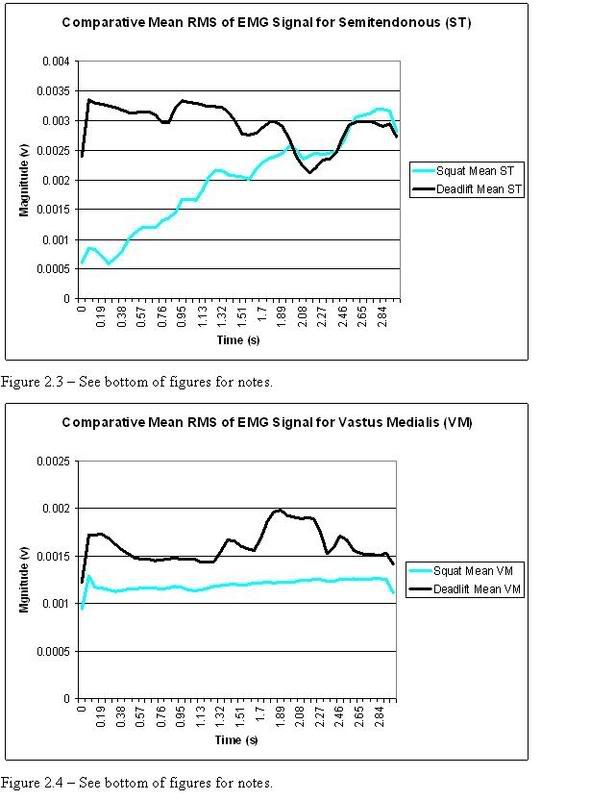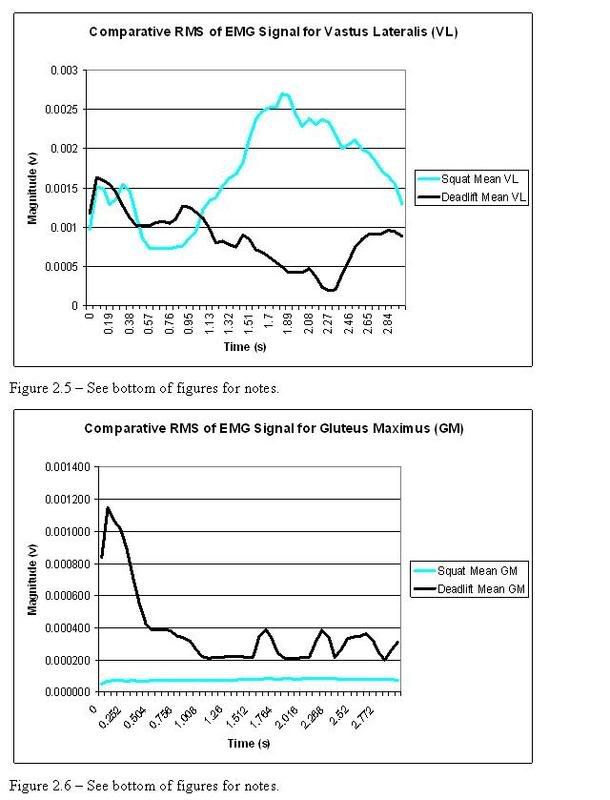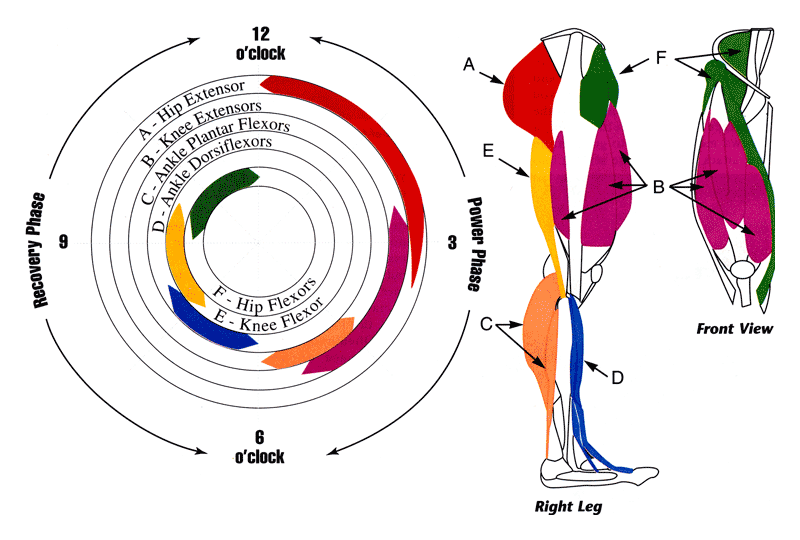This study looked at eight different muscle sites calf, two quadriceps, two hamstrings, glutes, lower back and abs. Seven weightlifters took part in the study and where randomly assigned to either perform an Olympic squat (full squat high bar position) or conventional deadlift first (3 reps of their 6 repetition maximum (R.M). After a five minute rest they performed the protocol on the other exercise.
EMG data was collected during each exercise for all eight of the selected muscle groups.
What follows are graphs showing the magnitude in activation (using the root mean squared technique) comparing both exercises.


 Results.
Results.The deadlift showed a markedly greater level of activation in 5 out of the 8 muscles sampled. The deadlift also showed greater levels of activation in the VM which is counter-intuitive to say the least.
Conversely the squat showed higher levels of activation in the ST muscle which is also somewhat surprising since variations of the deadlift (namely stiff legged deadlifts have been shown to have up to 2x higher levels of activation in all hamstring musculature.
These garphs are a better barometer of total EMG data and not a good indicator of the timing of motor unit firing.
If you look at the GN the reason it comes out with a much larger RMS value is due to a prolonged time under tension and since the level of activation in both exercises is almost identical.
As far as lower back and abs are concerned the deadlift blew away the squat in the lowerback and edged it out in the abs department. Prior EMG studies have shown that squats and deadlift are superior to conventional abs exercises and instability training for the activation of the mid-section musculature.
Cliff notes
Deadlift superior in five out of eight muscles studied.
Calf muscles show higher levels of activation in the squat due to a higher time under tension.
Squat shows higher levels of activation in one quad and one hamstring studied and vice versa for the deadlift.
Deadlift shows far greater levels of activation in the glutes (3-4x plus).
Deadlifts show higher levels of activation in the midsection.
Result Deadlift via KO in round 1.





 Most other studies are showing at least equal and normally higher EMG activity in GM compared to BF during olympic squats.
Most other studies are showing at least equal and normally higher EMG activity in GM compared to BF during olympic squats.





